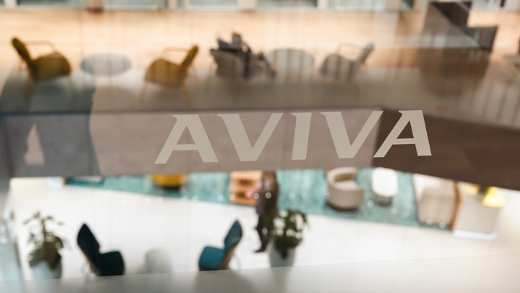
- 65% of students surveyed have a side hustle today[1], compared to 38% in 1980s
- Retail and hospitality still dominate the student side hustles (36% and 25%)
- More than half (53%) of students who had a side hustle work out of financial necessity but it’s not all about money - 22% are looking to develop new skills and 17% want to pursue a passion
- The average student works just under 10 hours per week on their side gig
The start of university is often a whirlwind of parties, club enrolments, and impulsive spending. For many students, Freshers Week is a milestone event, but it can lead to a near-empty bank account. Faced with rising costs and dwindling savings, a growing number of students turn to side hustles to survive.
New research from wealth provider, Aviva, who surveyed more than 600 UK university/ college students and graduates - from the 1980s to today, reveals that side hustles have become a foundation of student financial resilience. It also highlights a generational shift in attitudes toward work, financial independence, and career development.
While over a third (38%) of students had a side hustle or part time job in the 1980s, that figure has risen to 65% today (2020-2025), with today’s students open to embracing the additional work to manage their costs, build new skills, and increase financial independence - not just out of financial necessity.
While retail and hospitality remain popular choices through the decades accounting for 36% and 25% of side hustles respectively, today’s students are diversifying. More than one in ten (12%) take on delivery or driving jobs, a similar number (11%) are creating content online or tutoring (10%), helping others while earning extra cash. And, while selling via online shops didn’t exist in the 1980s, more than 30% of 2020-25 students make some extra money this way today.
Some of the more unusual side hustles reported include dressing up as a football mascot at weekends; standing in a queue for other people a 'professional queue sitter’; and painting film backdrops at the iconic Bray Film Studios – the home of classic horror films and The Rocky Horror Picture Show.
Perhaps predictably, more than half (53%) of those with a side hustle work out of financial necessity, a further third (35%) want to earn extra cash for small luxuries, figures that haven’t really changed since the 1980s, but it’s not all about money. Today, one in five (22%) want to develop new skills, seek flexibility and freedom (20%) or pursue a personal interest, hobby or passion (17%) as their side hustle.
As students continue to balance academic responsibilities with income generating activities, the side hustle is no longer an afterthought for many, but a building block for their long-term financial wellbeing.
Students today spend an average of 9.6 hours per week on their side hustle, with 32%[2] working 11 hours or more, which is a reduction on the 1990s, when more than two in five (44%) students worked 11 hours or more a week. And 3% of them said they clocked up between 31–40 hours weekly.
Far from being a distraction, nearly half (48%)[3] of students with a side hustle say it positively impacted their academic performance, and three quarters (75%)[4] of graduates believe it contributed to their career after graduation, especially among men (85%)[4] and those attending university/ college between 2020–2025 (89%)[4].
The vast majority (87%)[5] of survey respondents would recommend a side hustle to today’s students — rising to 94% among the 25–34-year-olds.
Alistair McQueen, Head of Savings & Retirement at Aviva says, "The pandemic has reshaped how many people engage with work, and students are no exception. For some, greater flexibility has opened the door to new business ventures and for others, financial pressures have made earning extra income a necessity. What’s clear is that students are showing great initiative and talent — qualities that deserve recognition.
"As students continue to balance academic responsibilities with income generating activities, the side hustle is no longer an afterthought for many, but a building block for their long-term financial wellbeing."
-ends-
References:
Methodology: Research was led by Censuswide – using a sample of 629 UK Students (past and present) who attended university/college from 1980s onwards – equally spread across each decade. The survey was conducted between 15.09.2025 - 02.10.2025. Censuswide abides by and employs members of the Market Research Society and follows the MRS code of conduct and ESOMAR principles.
1. ‘Students today’ refer to students who have attended college or university between 2020-2025 [↑]
2. Combines ’11-20 hours’, ’21-30 hours’, ’31-40 hours’ and ‘Over 40 hours’ [↑]
3. Combines ‘Very positively’ and ‘Somewhat positively’ [↑]
4. Combines ‘A great deal’, Quite a lot’ and ‘A little’ [↑]
5. Combines ‘Definitely yes’ and ‘Probably yes’ [↑]
Enquiries:
Fiona Whytock
Retirement, Savings and Investments
-
Phone
-
+44 (0) 7800 692 299
-
-
Email
-
Other
Notes to editors:
- We are the UK's leading diversified insurer and we operate in the UK, Ireland and Canada. We also have international investments in India and China.
- We help our 25.2m customers make the most out of life, plan for the future, and have the confidence that if things go wrong we’ll be there to put it right.
- We have been taking care of people for more than 325 years, in line with our purpose of being ‘with you today, for a better tomorrow’. In 2024, we paid £29.3 billion in claims and benefits to our customers.
- Aviva is a Living Wage, Living Pension and Living Hours employer and provides market-leading benefits for our people, including flexible working, paid carers leave and equal parental leave. Find out more at www.aviva.com/about-us/our-people/
- As at 30 June 2025, total Group assets under management at Aviva Group were £419 billion and our estimated Solvency II shareholder capital surplus as at 30 September 2025 was £7.0 billion. Our shares are listed on the London Stock Exchange and we are a member of the FTSE 100 index.
- For more details on what we do, our business and how we help our customers, visit www.aviva.com/about-us
- The Aviva newsroom at www.aviva.com/newsroom includes links to our spokespeople images, podcasts, research reports and our news release archive. Sign up to get the latest news from Aviva by email.
- You can follow us on:
- X: www.x.com/avivaplc
- LinkedIn: www.linkedin.com/company/aviva-plc
- Instagram: www.instagram.com/avivaplc/
- For the latest corporate films from around our business, subscribe to our YouTube channel: www.youtube.com/aviva
















